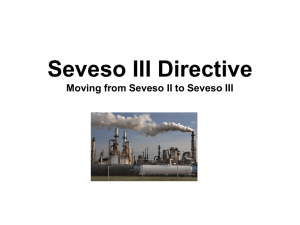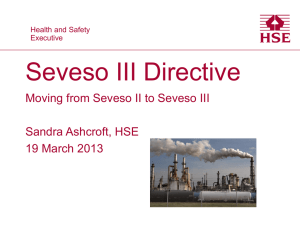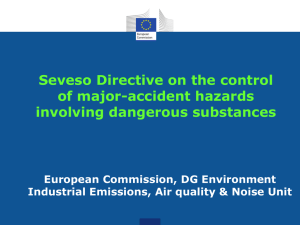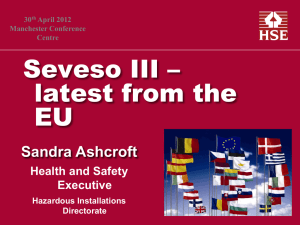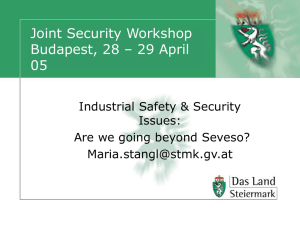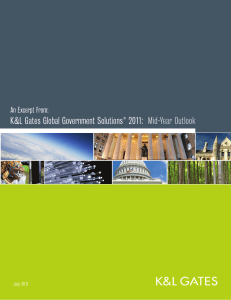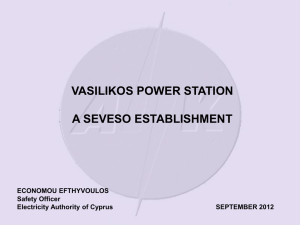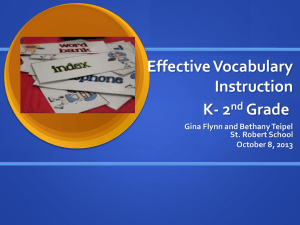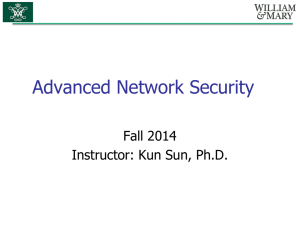Differences between COMAH Regs 1999 and Seveso III
advertisement
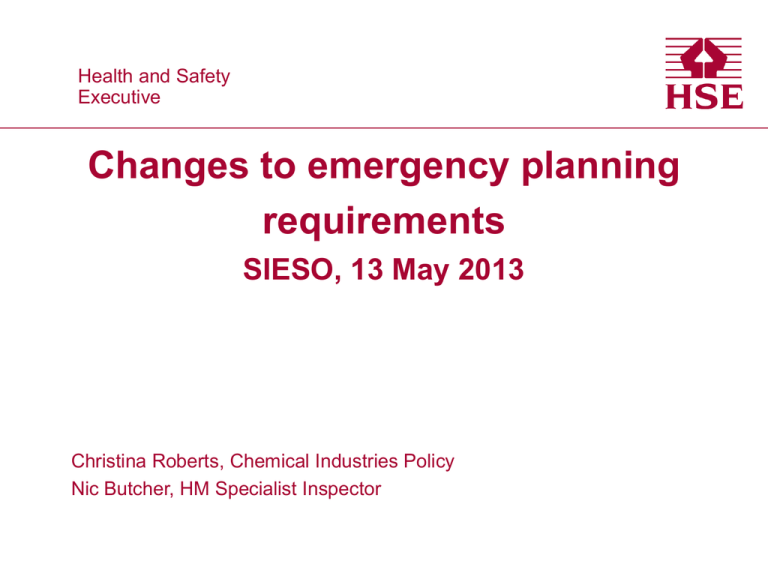
Health Healthand andSafety Safety Executive Executive Changes to emergency planning requirements SIESO, 13 May 2013 Christina Roberts, Chemical Industries Policy Nic Butcher, HM Specialist Inspector Purpose of session • To outline key differences in emergency planning requirements between COMAH Regs 1999 and Seveso III Directive • • To address some key issues • To gather delegate responses To discuss how best to implement the requirements (syndicate work) What stays the same? • Top tier operators required to draw up onsite emergency plan and provide sufficient information to offsite emergency planners • Local emergency planning authority to draw up offsite emergency plans • • Train, test, review etc Lower tier requirements What are the key differences? Issues? Differences: • • • Content of off site emergency plan • Information to the public Timescales for preparation of emergency plans Public concerned given early opportunity to give opinion on off site emergency plan Issues to consider: • • Link to civil contingencies Lower tier establishments Differences between COMAH Regs 1999 and Seveso III requirements 1. Content of off site emergency plans • Extra info required for off site emergency plans – Arrangements for off site mitigatory action to include: • Responses to major accident scenarios from the safety report • Considering possible domino effects • Including environmental impact of above – Arrangements for providing neighbouring establishments – not just defined ‘domino’ ones - and other neighbouring sites with information on accidents and actions to be taken. • Will this make much of a difference? Seveso III Directive types of establishment Before looking at timescales for emergency plan preparation, need to understand establishment definitions: • New – Comes into scope after 31 May 2015 – Operating prior to 1 June 2015, but comes into scope or changes tier due to voluntary modifications leading to changes in inventory. • Existing – In scope on 31 May 2015 and is still in scope on 1 June 2015 with no changes in tier. • Other – Comes into scope or changes tier due to involuntary modifications e.g. substance category change Differences between COMAH Regs 1999 and Seveso III requirements 2. Timescales for provision of information by operator for offsite emergency planning – ‘New’ establishments – reasonable period of time prior to operation. – ‘Existing’ establishments – by 1 June 2016 for additional info (unless already provided). – ‘Other’ establishments – will have 2 yrs to provide information. • Plus a further 2 yrs to produce off site emergency plan from when information received i.e. up to 4 yrs in total for ‘other’ establishments! • Concerns??? Differences between COMAH Regs 1999 and Seveso III requirements 3. ‘Public concerned’ given early opportunity to give opinion on external emergency plans • • • Who is ‘public concerned’? How do we deal with a transient population? How can we best contact the ‘public concerned’? Differences between COMAH Regs 1999 and Seveso III requirements 4. Information to the public • More on this later today… but with respect to emergency planning: • Requirement for information to be permanently available, including electronically. Includes: – How the public concerned is warned – Appropriate behaviour in the event of an accident / or where they can find this information • Applies to lower tier sites – how will we do this? • Also for top tier sites: – Appropriate information from off site emergency plan – what should this information be? Issues to consider 1. Link to civil contingencies • • What are the current links? Are the current arrangements working? Issues to consider 2. Lower tier establishments • No specific requirements to draw up a onsite or offsite plan under article 12 • However, within the requirements for safety management systems: Planning for emergencies - adoption and implementation of procedures to identify foreseeable emergencies by systematic analysis, to prepare, test and review emergency plans to respond to such emergencies and provide specific training for the staff concerned... Etc. • • Note – there is no change from Seveso II But are existing arrangements adequate?? Others??? • Are there any other key differences? Syndicate work • How best to implement the requirements Staying in touch • Seveso website http://www.hse.gov.uk/seveso/ • Seveso ebulletin http://www.hse.gov.uk/seveso/ebulletin.htm • • Consultation – informal & formal Guidance including recent COMAH CA information Thanks!
